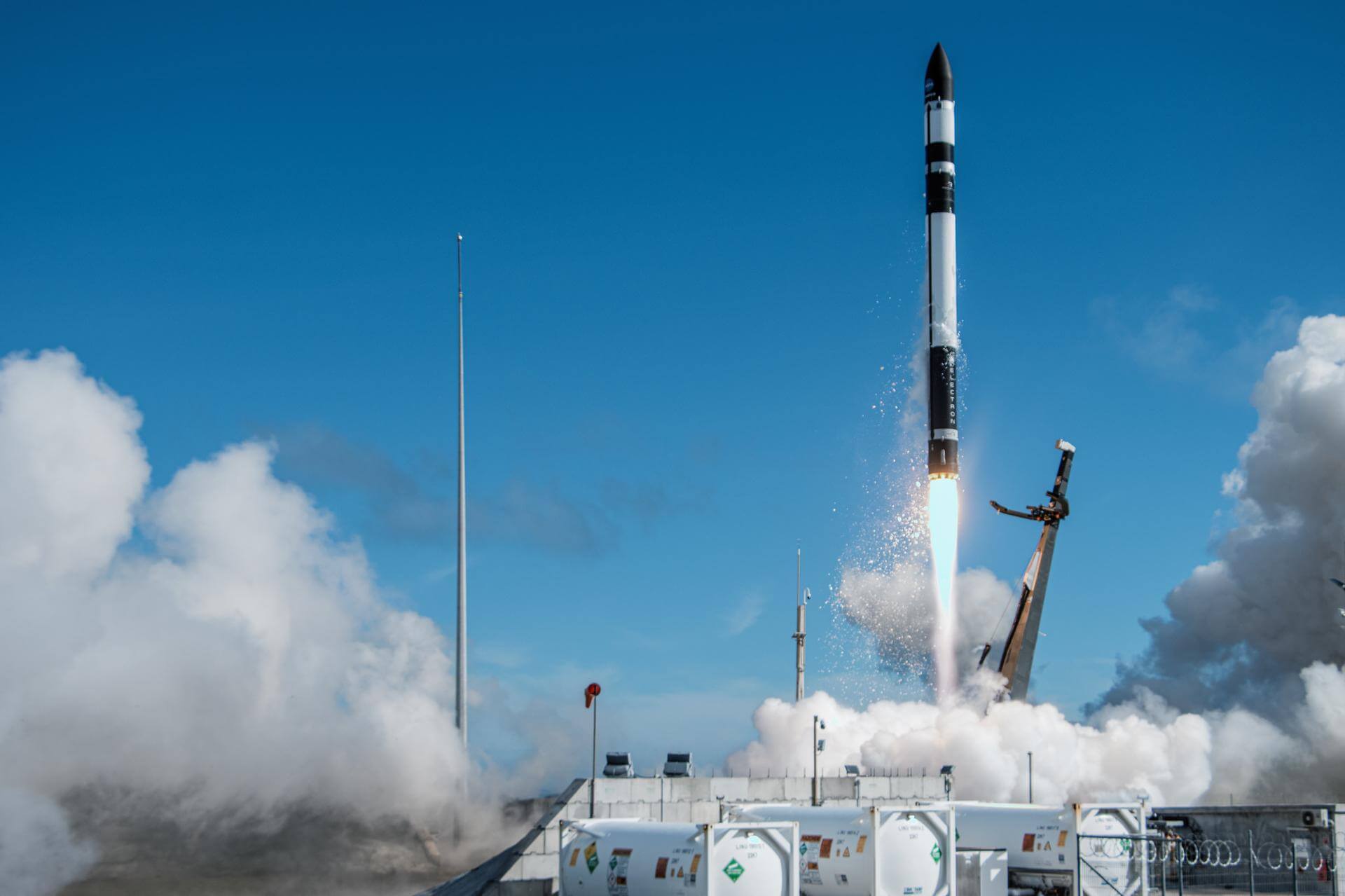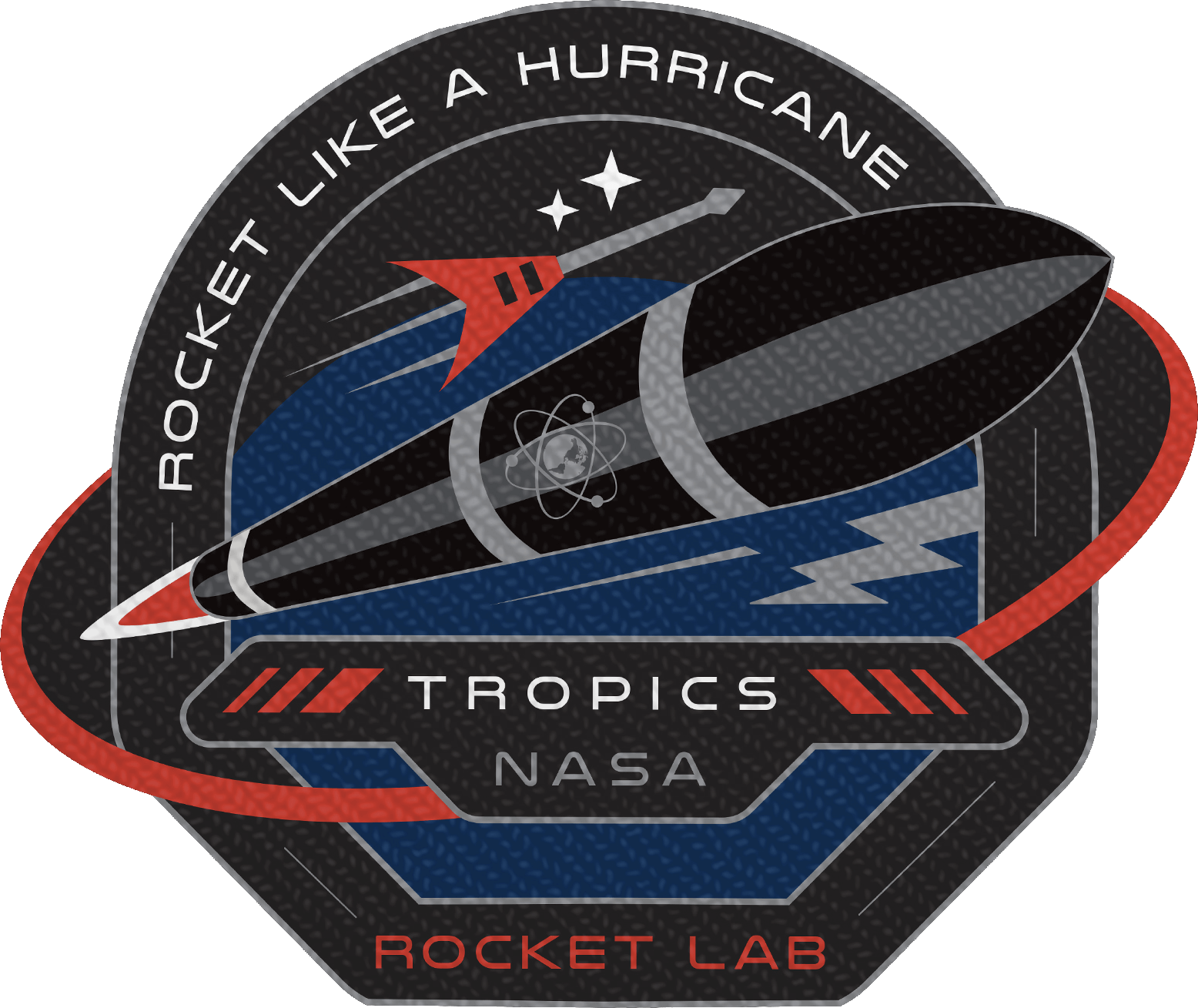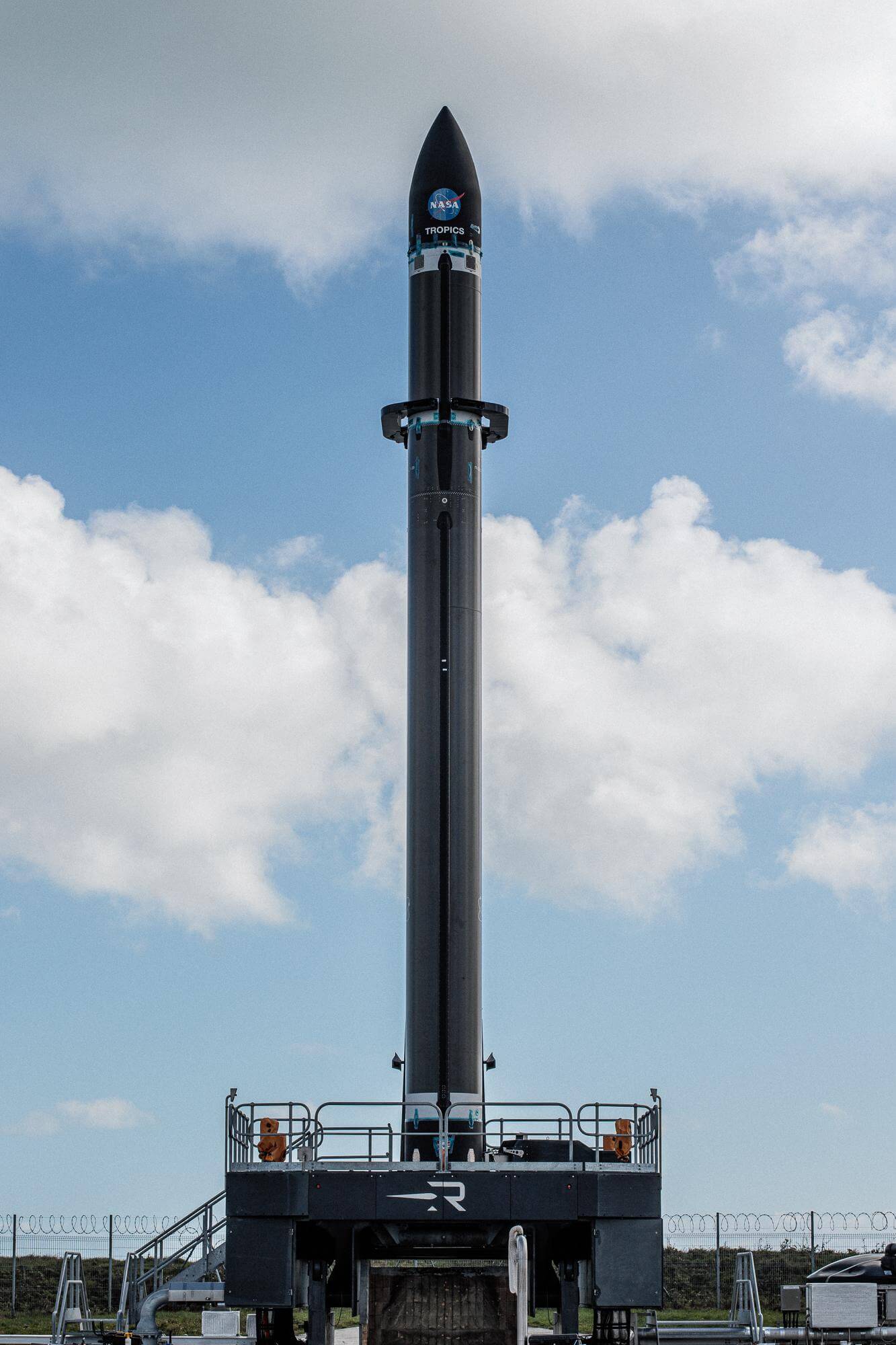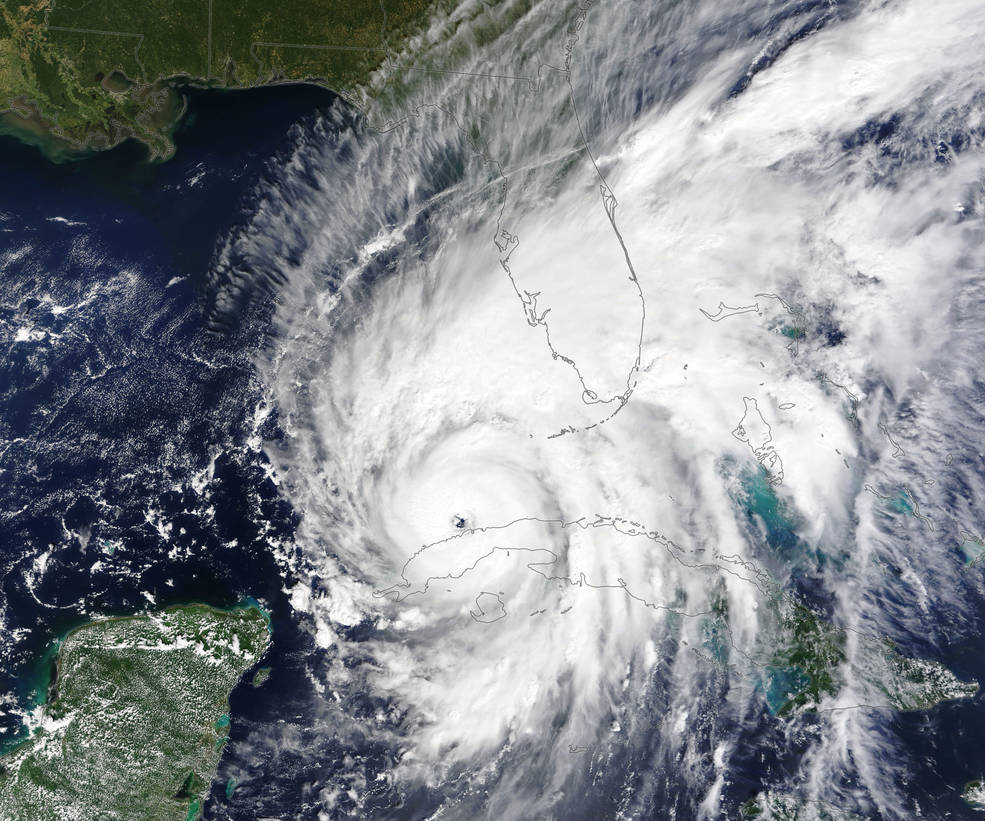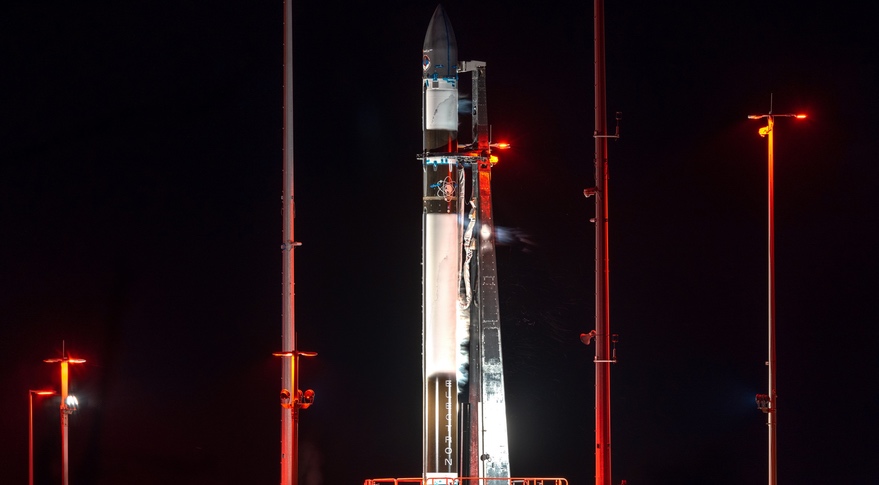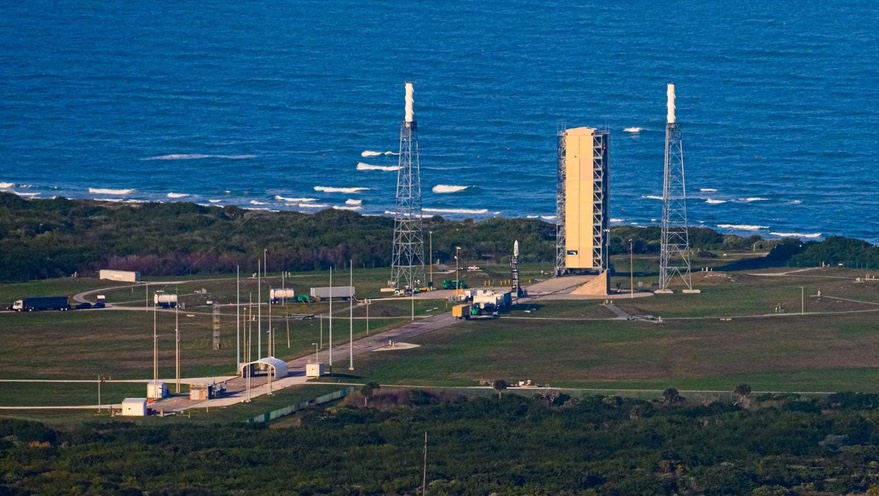Electron | Rocket Like A Hurricane (TROPICS-2)
Rocket Lab Launch Complex 1B
Onenui Station, Mahia Peninsula, New Zealand
T?
--
Days
:
--
Hours
:
--
Mins
:
--
Secs
Date Loading...
Rocket Lab
Rocket Lab is an American aerospace manufacturer with a wholly owned New Zealand subsidiary. The company develops lightweight, cost-effective commercial rocket launch services. The Electron Program was founded on the premise that small payloads such as CubeSats require dedicated small launch vehicles and flexibility not currently offered by traditional rocket systems. Its rocket, the Electron, is a light-weight rocket and is now operating commercially. The company is also producing a variety of spacecrafts and spacecrafts components.
TROPICS-2
Third and fourth operational (TROPICS-04 & TROPICS-05) satellites for NASA's Time-Resolved Observations of Precipitation Structure and Storm Intensity with a Constellation of SmallSats (TROPICS) mission. The CubeSats are designed to provide rapid-refresh microwave measurements that can be used to determine temperature, pressure, and humidity inside hurricanes as they form and evolve.
Electron
Height 18.00 Meters
Max Stages 3
Mass To GTO 0 kg
Liftoff Thrust 162 kN
Diameter 1.20 Meters
Mass To LEO 300 kg
Liftoff Mass 13 Tonnes
Launch Success 43
Consecutive Success 6
Maiden Flight 2017-05-25
Launch Failures 4
Core
Serial 36
Status expended
Flight Proven Yes
Flights 1
Landing Attempt No
Landing Success Unknown
Type EXP
Location PAC
Updates
Jay
2023-05-08T02:49:41+0000
Both TROPICS satellites have deployed from the Electron kickstage
Jay
2023-05-08T01:00:45+0000
Liftoff of Electron carrying 2 NASA TROPICS satellite
LL2
2023-05-08T00:24:57+0000
Livestream has started
Cosmic_Penguin
2023-05-05T03:57:10+0000
New launch date confirmed.
Jay
2023-05-01T22:02:49+0000
Delayed again due to weather, new date will be determined after the storm passes.
Jay
2023-04-28T20:28:25+0000
Launch delayed to NET May 3rd as teams monitor a storm at the launch site.
Jay
2023-04-10T21:16:51+0000
Setting GO. Rocket Lab has confirmed they have moved the mission to LC-1 in New Zealand
Nosu
2022-11-23T15:59:43+0000
Updating launch vehicle, provider, and pad. Launch NET May 1, 2023.
Cosmic_Penguin
2022-08-04T22:58:43+0000
NET 2023; rocket configuration will be updated later on DB
Nosu
2022-03-25T21:53:11+0000
NET April
Related Events
NASA TROPICS Teleconference
T?
NASA will host a media teleconference ahead of the launch of its TROPICS mission.
Related News
2023-08-07T22:58:53+0000
The Launch Pad
NASA TROPICS Constellation Fully Operational & Ready For Hurricane Season
2023-08-07T14:33:42+0000
SpaceNews
TROPICS cubesat constellation ready for hurricane season
2023-05-16T20:23:00+0000
NASA
NASA, Rocket Lab Announce Coverage for Second TROPICS Launch
2023-05-08T15:03:00+0000
NASA
NASA, Rocket Lab Launch First Pair of Storm Observing CubeSats
2023-05-08T02:43:20+0000
SpaceNews
Rocket Lab launches NASA TROPICS cubesats
2023-05-07T20:11:56+0000
NASASpaceflight
Rocket Lab launches NASA’s TROPICS satellites from New Zealand
2023-05-05T21:13:00+0000
NASA
NASA, Rocket Lab Update Launch Coverage for Tropical Cyclones Mission
2023-04-24T19:50:00+0000
NASA
NASA, Rocket Lab Set Coverage for Tropical Cyclones Mission
2023-04-11T11:12:50+0000
SpaceNews
Rocket Lab shifts NASA cubesat launches from Virginia to New Zealand
2023-04-10T22:06:00+0000
The Launch Pad
Rocket Lab Sets Launch Dates For TROPICS Launches
2022-11-25T17:36:57+0000
SpaceNews
Rocket Lab to launch remaining NASA TROPICS satellites
2022-11-23T14:07:00+0000
NASA
NASA Awards Launch Services Task Order for TROPICS CubeSats Mission
2022-05-07T17:33:38+0000
SpaceNews
Astra prepares for TROPICS launch campaign
2021-02-26T21:45:00+0000
NASA
